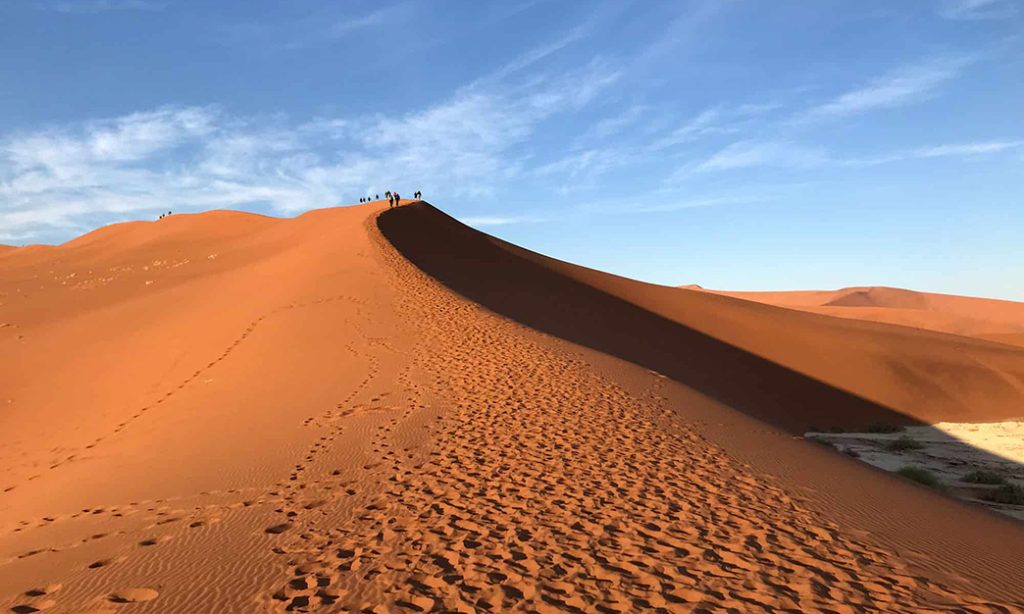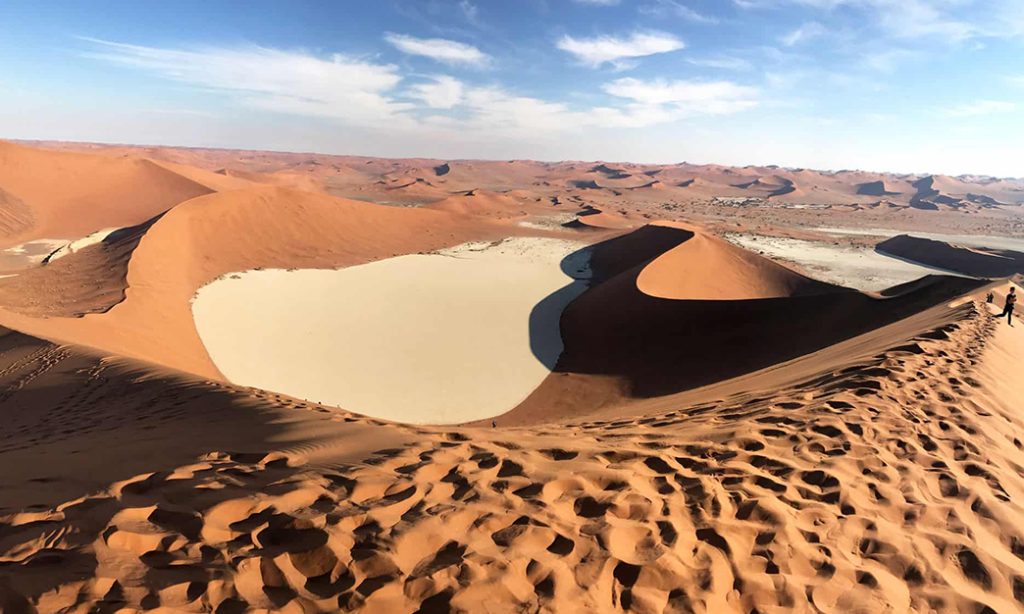1. Research and Preparation
- Familiarize Yourself with Local Customs: Learn about Namibia’s local laws, customs, and etiquette before your trip to avoid cultural misunderstandings.
- Travel Insurance: Secure comprehensive travel insurance that covers medical emergencies, trip cancellations, and unforeseen incidents during your stay.
2. Health Precautions
- Vaccinations: Consult your healthcare provider well in advance to determine which vaccinations are required or recommended for Namibia. Common vaccines include hepatitis A and B, typhoid, and tetanus.
- Malaria: Depending on your travel destinations, malaria may be a concern. Discuss antimalarial medication options with your doctor and use mosquito repellent and bed nets as precautionary measures.

3. Transportation Safety
- Road Conditions: Namibia’s roads can vary from well-maintained highways to gravel and sand tracks. If you plan to drive, ensure your vehicle is suitable for the terrain, and always carry essential supplies such as water and a spare tire.
- Wildlife Awareness: Exercise caution when driving, especially in wildlife areas. Be alert for animals on the road, particularly during dawn and dusk, and adhere to speed limits.
4. Personal Safety
- Stay Informed: Keep up with local news and any travel advisories issued by your government. Register with your embassy or consulate before traveling to receive updates and assistance if necessary.
- Avoid Risky Areas: Steer clear of neighborhoods known for high crime rates, especially after dark. It’s advisable to explore urban areas with a local guide.
- Secure Valuables: Use hotel safes or secure storage facilities for passports, cash, and valuable items. Keep copies of your passport and important documents separately from the originals.
5. Wildlife Encounters
- Respect Wildlife: While Namibia offers fantastic wildlife viewing opportunities, remember that these are wild animals. Maintain a safe distance, never feed them, and follow the guidance of experienced guides during safaris.
6. Hydration and Sun Protection
- Stay Hydrated: Namibia’s climate can be arid and hot, particularly in desert regions. Consume ample water to remain hydrated, especially during outdoor activities.
- Sunscreen and Protective Clothing: Apply sunscreen, wear sunglasses, and cover exposed skin to shield yourself from the intense African sun.

7. Local Cuisine and Water
- Dining Safety: Savor the local cuisine, but opt for reputable restaurants and eateries to reduce the risk of foodborne illnesses.
- Water: Stick to bottled or treated water to prevent waterborne diseases. Avoid consuming tap water unless it has been properly purified.
8. Emergency Contacts and Communication
- Emergency Numbers: Familiarize yourself with local emergency contact numbers, including those for the police, medical services, and your embassy or consulate.
- Mobile Connectivity: Verify your mobile phone’s connectivity and consider purchasing a local SIM card for data and calls.
9. Traveling in Groups
- Group Tours: Contemplate joining group tours or safaris, particularly in remote areas. Traveling with others enhances safety and offers shared experiences.
10. Trust Your Instincts
- Intuition: Trust your instincts. If a situation feels unsafe or uncomfortable, err on the side of caution and remove yourself from it.
Secure Exploration of Namibia
By adhering to these safety tips, you can confidently explore the wonders of this remarkable country while safeguarding your well-being. With careful planning and awareness, your Namibian adventure will be both memorable and secure.



